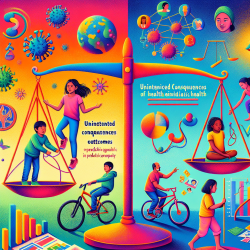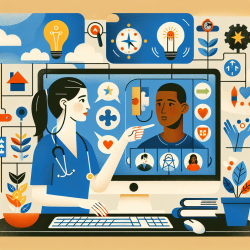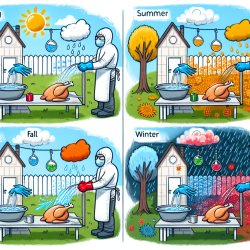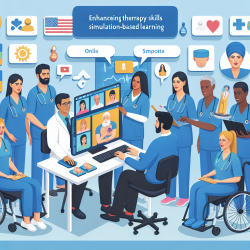Introduction
The COVID-19 pandemic has been a defining event of our time, reshaping lives and systems globally. Non-pharmaceutical interventions (NPIs) such as lockdowns, school closures, and social distancing were implemented to curb the virus's spread. However, a recent review, "Unintended Consequences of COVID-19 Non-Pharmaceutical Interventions (NPIs) for Population Health and Health Inequalities," highlights significant unintended consequences of these measures, particularly on mental health and lifestyle risk factors for non-communicable diseases (NCDs).
Understanding the Impacts
The review underscores the adverse effects of NPIs on mental health, physical activity, and obesity. It reveals increased anxiety, depression, and stress levels across various demographics, with children, adolescents, and individuals with pre-existing mental health conditions being particularly vulnerable. The disruption in daily routines and social isolation has exacerbated these mental health challenges.
Physical activity levels declined significantly, especially among children and older adults, due to restrictions on movement and access to recreational facilities. This sedentary lifestyle has contributed to weight gain and increased obesity rates, further compounding health risks.
Implications for Practitioners
As practitioners, it is crucial to integrate these findings into our practice to mitigate the negative impacts of NPIs on children's health and development. Here are some actionable steps:
- Promote Physical Activity: Encourage creative ways to incorporate physical activity into daily routines, even within the confines of home settings. Utilize online resources and virtual platforms to engage children in physical exercises.
- Support Mental Health: Implement strategies to support mental well-being, such as mindfulness practices, virtual social interactions, and family engagement activities. Provide resources and referrals for mental health support when necessary.
- Monitor Nutrition and Weight: Educate families on maintaining balanced diets and monitor changes in children's weight and eating habits. Offer guidance on healthy eating practices and the importance of nutrition for overall well-being.
Encouraging Further Research
The review also calls for further research to understand the long-term impacts of NPIs on health inequalities and to develop targeted interventions. Practitioners can contribute by documenting observations, collecting data, and participating in research initiatives that explore these areas.
Conclusion
The unintended consequences of NPIs during the COVID-19 pandemic have highlighted the need for a balanced approach to public health interventions. By understanding and addressing these impacts, practitioners can play a pivotal role in promoting better health outcomes for children and reducing health inequalities.
To read the original research paper, please follow this link: Unintended Consequences of COVID-19 Non-Pharmaceutical Interventions (NPIs) for Population Health and Health Inequalities.










